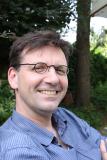Having studied History and Philosophy at KU Leuven, I took my PhD in History at KU Leuven (2000) with a dissertation on Renaissance astrology at the late medieval university of Louvain. In the 15th and 16th centuries, Louvain was internationally renowned as a key European centre of mathematical culture (comprising luminaries such as Reinier Gemma Frisius and Gerard Mercator) with strong ties to the local medical school. As an occasional PhD-student at the Warburg Institute (University of London) in 1998 and 1999, my interests converged on the academic pursuit of astrology as a suitable way of gauging the close interlocking of academic, courtly, and urban knowledge cultures with the rapidly changing worlds of print, medicine, astronomy, Renaissance humanism, theology, and material culture. The resulting dissertation, which had the sorely missed Fernand Hallyn (1945-2009) and John D. North (1934-2008) as external examiners, was awarded the biennial Jan Gillis Prize of the KVAB in 2002. A revised version was published with Brill in 2003 as part of the then-recent book series of Early Science and Medicine.
Seeing friends in graduate school turn into competitors for scarce local post-doctoral positions is not an appealing psychological or social prospect. I was therefore happy to be offered a post-doctoral position at the Department of History of Science and Technology at The Johns Hopkins University (Baltimore), where I ended up staying three years. Hopkins was an excellent training ground: it brought me much-needed teaching opportunities, extraordinary interlocutors (e.g. Lawrence Principe, Michael Aaron Dennis, Harry Marks), and increased exposure to the social and intellectual benefits of departmental seminars. It also confirmed my desire to stay in the profession. After a number of close calls in landing a State-side academic job, I found myself with one offer in the US and another in Belgium in the spring of 2004. For family reasons, I eventually decided to take a job at KU Brussel, which was (and remains) the closest thing to a liberal arts college that one could find in Belgium.
KU Brussel was a wonderful experience: a thoroughly interdisciplinary spirit pervaded several local departments, the student body was small and uncannily curious, and I am happy to say that a considerable percentage of our students went on to obtain PhD’s, post-docs, and professorships. Unfortunately, KU Brussel’s debatable “return on public investment” also offered the perfect alibi for bigger institutions seeking to appropriate a brand name with which to expand their presence in the profitable Brussels higher education “market”. An alliance between the Flemish ministry of education and other universities abolished my department at KU Brussel in 2007 (with the entire university dismantled only a few years later), and I was assigned a place at Ghent University instead.
Witnessing the heavily politicized nature of Flemish higher education up close was a sobering and frankly depressing experience, from which it took me the better part of a decade to recover. Much of that decade was spent getting history students interested in the fields of history of science and intellectual history, teaching far beyond my area of expertise, and negotiating collegial suspicions that I might be practicing relativism, Catholicism, and the study of strange things.
As a researcher, I enjoy visiting the salon des refusés of modernity. I am generally fascinated by two related phenomena. First, by the disconnect between the official stories our societies tell themselves about what they are and where they come from, and their unofficial reality. Second, by the role that academic history writing plays in perpetuating these self-narratives, often through the lever of methodological choices and self-inscription in contemporary media culture.
Consider, for instance, astrology: on the one hand, we constantly claim that it is “still” with us (as if it were culturally undead – here, yet really belonging to the past); on the other hand, official surveys remind us that only about half of the population considers it to be non-scientific, and that an unexpectedly high number of people rely on it. As far as I am concerned, the interesting question is not who is right or wrong, but how historians can help navigate the fissures that divide our societies about what counts as knowledge, and how they can help shape mutual understanding and respect. This is the main impetus driving a current book project, in which I investigate astrology as a highly adaptable practice of care of the self which has maintained a steady (if increasingly unilateral) conversation with the official face of modernity.
Lately, I have also written a number of preliminary studies that address the problematic status of religion in our accounts of early modern science in the Low Countries. As one for whom the idea that “we” live in a secularized society came crashing down on 11 September 2001, I am fascinated by the belief that religion is somehow antithetical to modernity. Against ongoing claims that science in the Spanish Netherlands of the 17th century lost the ‘plot’ of the so-called Scientific Revolution after the 1610s due to “the hair-splitting orthodoxy of the Counter-Reformation”, I try to show how local physicians, natural philosophers, and astronomers carved out original and successful ways of aligning science and salvation. One of my main sources of inspiration in dealing with this problem is the work of the French historian Michel de Certeau (1925-1986), whose work on early modern mysticism and Catholicism eventually ushered into a promising but largely forgotten project for rethinking the key analytical notion of “belief”.
In a more distant future, I would also like to return to earlier studies on the Danish astronomer Tycho Brahe (1546-1601), on the history of early modern witchcraft "skepticism", and on the Louvain polymath Cornelius Gemma (1535-1578).
